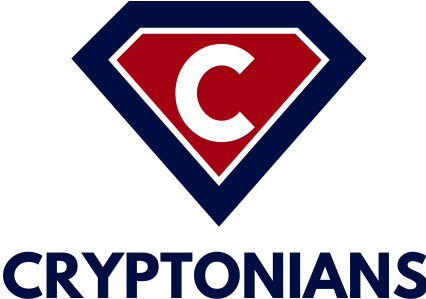The future of DeFi is ReFi

The key to unlocking this transformation and propelling the industry forward lies in embracing the regenerative economy.
The TradFi mindset is holding crypto back
The constantly evolving ecosystem of decentralized finance (DeFi) has emerged as a groundbreaking and experimental alternative to traditional finance (TradFi), demonstrating immense potential while simultaneously facing a myriad of challenges.
Paradoxically, some of the very behaviors that have long characterized TradFi — the prioritization of short-term profits, and extractive practices that benefit a few at the expense of the majority — have seeped into the world of DeFi, hampering the progress of this revolutionary technology towards its initial goals.
The detrimental impacts of TradFi are most evident in their consequences on people, through wealth inequality and on the planet by contributing to climate change. In our industry, we’ve experienced this fallout through catastrophic company failures, malpractice by centralized actors and outright scams.
The crypto space must realign its values and redirect its focus towards democratizing access to financial tools and fostering financial inclusivity, as it was conceived to do.
The key to unlocking this transformation and propelling the industry forward lies in embracing the regenerative economy.
What is ReFi?
Regenerative Finance (ReFi) leverages DeFi tools to forge a regenerative economic system.
The concept of regenerative economics is largely attributed to economist John Fullerton, who introduced a comprehensive framework in his 2015 paper, Regenerative Capitalism. Drawing inspiration from the inherently regenerative systems that we can observe in nature, Fullerton describes the regenerative economy as one that values resource replenishment and the equitable distribution of benefits among all participants in the system.
ReFi embodies this notion of a self-sustaining economic system that focuses on the continuous renewal of resources. Just as important is the fact that ReFi looks to democratize control of, and access to, financial services.
Why is it the future?
Crypto has arguably presented the most promising avenue for implementing a regenerative economy thus far.
ReFi is set apart from existing sustainability efforts by its pragmatic approach. By addressing the system holistically, ReFi acknowledges the strengths of capitalist markets while rectifying their shortcomings, ensuring that human and ecological well-being remains at the heart of decision-making.
ReFi and DeFi recognize the value of transparent, collaborative and decentralized decision-making processes that can transform the economic landscape.
As DeFi continues to evolve and embrace the concept of a regenerative economy, it can become a powerful tool to drive systemic change, bridging the gap between economic growth and social equity.
Join the community where you can transform the future. Cointelegraph Innovation Circle brings blockchain technology leaders together to connect, collaborate and publish. Apply today
How can builders get involved in ReFi?
Prioritize sustainable sources of capital
Companies looking to participate in the regenerative economy should seek out sustainable streams of income, while also diversifying the ways they generate capital. Doing this creates a more stable and resilient financial foundation.
What constitutes a sustainable income source will vary depending on the nature of a company, but it can take many forms. It can look like platform or protocol fees, rewards from token yield farming, grant programs or industry partnerships.
Although securing funds through sustainable income channels might require more time and effort compared to conventional methods like fundraising, the long-term benefits are significant.
A diversified income stream can help companies better withstand market fluctuations, promote financial stability and contribute to the development and maintenance of a regenerative financial ecosystem.
Deliver value and embrace collaboration
To qualitatively assess our engagement with a regenerative system, we can ask ourselves a simple question. Are we putting more value back into the system than we are taking from it?
While value added to the system can be obvious in the form of products and services that we offer, there are countless other ways to add value. By collaborating with others in the space and building with transparency, we can substantially strengthen the industry as a whole.
Aim for real-world impact
Nothing benefits the long-term health and proliferation of crypto more than solving real-world problems. This means that the value we create beyond the crypto ecosystem can be even more impactful than the value we create within it.
If we can address issues across multiple industries, we can further expand on crypto’s usefulness, create robust sources of capital and increase the resilience of our regenerative economy.
The real-world impact goes beyond paid work for companies in other industries. We can’t take for granted the impact that crypto companies can have on their communities, contributors and partners. Although hard to quantify, the value created for individuals taking part in a system where they are given a true sense of ownership and decision-making power is a major incentive that keeps people participating in a regenerative system.
Be an advocate and educator
Adopting the ReFi mindset requires companies to carefully assess their short-term goals and ensure they align with a broader, long-term vision that centers on systemic sustainability.
As a company transitions from the status quo to regenerative approaches, it’s crucial to communicate effectively with community members, collaborators, customers and investors. Sharing the organizational vision and how it aligns with ReFi helps establish accurate expectations while fostering trust.
Ultimately, no single organization or individual can create a regenerative financial system alone. To be a true participant, it’s important to curate a network of people and organizations that are also exploring similar capabilities.
As we contend with the social and environmental fallout from our legacy institutions, ReFi is a promising and pragmatic model that leverages the most virtuous aims of DeFi in pursuit of a fairer, more transparent, more equitable and more sustainable economy.
As with all things crypto, the current state of regulatory uncertainty limits the experimentation that can happen. ReFi principles lead to a culture of healthy self-regulation, thus limiting the outcomes that lead to the kind of regulation that stifles innovation.
As challenging as the task of widespread ReFi adoption is, it holds an inspiring level of possibility. As crypto participants recognize the long-term benefits of ReFi and commit to advancing it, a more sustainable and inclusive financial ecosystem comes into focus.
Parker McCurley is pioneering a renewed digital era as a Co-Founder and Core Contributor at Decent Dao.
This article was published through Cointelegraph Innovation Circle, a vetted organization of senior executives and experts in the blockchain technology industry who are building the future through the power of connections, collaboration and thought leadership. Opinions expressed do not necessarily reflect those of Cointelegraph.
Learn more about Cointelegraph Innovation Circle and see if you qualify to join

